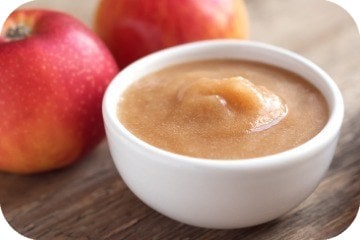
Can dogs eat caramel? No, your dog should not eat caramel. While caramel is not toxic to dogs, it contains raw sugar, which you should never give to your dog. Sugar can cause health issues, including cavities, obesity, and diabetes, and it can also affect your dog’s mood.
What should I do if my dog eats caramel?
1. If your dog eats caramel, keep an eye on them. Your dog may show changes in their behavior. These can include hyperactivity, difficulty concentrating, lethargy, or irritability. If you are feeling concerned, contact your veterinarian with any questions, but your dog should be fine.
2. Sometimes, caramel is found in chocolate products. While the caramel is not toxic, the chocolate can be. If your dog eats a chocolate caramel, look out for the following signs of chocolate poisoning:
- Vomiting
- Diarrhea
- Restlessness
- Increased urination
- Shaking
- Increased heart beat
- Seizures
3. Call your veterinarian or the Pet Poison Helpline immediately if your dog ate chocolate. They may recommend that you monitor your dog or suggest that you come into their office for treatment.
Busy? Get Your Hands Paws On The Answers Quickly…
- Common Ingredients In Caramel And The Risks And Benefits
- Alternative Sauces For Dogs
- Sweet Dog Treat Recipes
- FAQs
COMMON INGREDIENTS IN CARAMEL AND THE RISKS AND BENEFITS
Sugar? Maybe – NOT RECOMMENDED
While fructose (natural sugar from fruit) is safe to feed your dog, sucrose (table sugar from sugar cane) is not recommended for your pet.
A dog who eats a high-sugar diet puts them at risk for health problems like diabetes and teeth problems such as cavities. Sugar can also cause blood sugar levels to spike and then crash, which could cause your dog to feel depressed or lethargic.
Artificial sweetener known as xylitol is toxic to our furry friends.
Risks Of Sugar:
- Obesity
- Diabetes
- Cavities
- Depression
Salt? Maybe – NOT RECOMMENDED
If your dog eats too much salt, they can become very thirsty or even dehydrated. Additionally, they could develop sodium ion poisoning. This can occur if your dog does not have access to water right after eating the salt or if they eat a considerable amount of salt.
The most common signs of this condition are extreme thirst and urination, but other symptoms include confusion, convulsions, fever, lack of energy, increased heart rate, diarrhea, vomiting, and weakness.
Risks Of Salt:
- Dehydration
- Sodium-ion poisoning
Water? Yes – SAFE
Water is essential for all living creatures, including our pets. Water is an essential nutrient for dogs because it helps them with so many processes and keeps them hydrated.
Veterinarians recommend that your dog drinks one ounce for every pound that they weigh daily. So if your dog is 10 pounds, they should be drinking about 10 ounces of water every day. This helps them to keep hydrated and healthy.
Benefits Of Water:
- Helps the body absorb nutrients
- Helps the body digest food
- Helps maintain body temperature and cool them down if it’s warm out
- Helps move nutrients throughout the body
- Prevents dehydration
- Cushions joints
- Leads to the development of strong muscles
Cream? Maybe – NOT RECOMMENDED
For some dogs, eating a little bit of dairy is not a problem. But for other dogs, they may have a hard time digesting any dairy product, including cream. This is because dogs do not have high lactase amounts, which is the enzyme responsible for digesting lactose.
While cream is not toxic for your dog, most veterinarians do not recommend giving your dog cream or other milk-based products.
Risks Of Cream:
- Gastric upset
Butter? Maybe – NOT RECOMMENDED
Butter is not toxic for dogs, but it does not offer any nutritional benefits for them. It is also very high in fat, which can lead to gaining weight.
Butter also contains lactose, which some dogs have a hard time digesting and can leave them with stomach problems.
Risks Of Butter:
- Gastric upset
- Weight gain
ALTERNATIVE SAUCES FOR DOGS

Like humans, a lot of dogs have a sweet tooth! If you want to give your furry friend a sweet treat, there are some better options than caramel that we suggest.
Plain Yogurt
If your dog does not have a dairy intolerance, plain yogurt is a good treat for your dog. It can be beneficial if your dog has an upset stomach. Also, plain yogurt contains high amounts of calcium and protein.
Applesauce
Apples are high in fiber, antioxidants, and vitamins. To give your dog applesauce as a treat, look for a variety that is pure apple and has no added ingredients, sugar, colors, or preservatives. Another option is to make homemade applesauce to know exactly what is in it and that everything is safe for your dog.
Peanut Butter
This nut butter has many proteins and healthy fats, making it an excellent choice for your dog. It also makes for a great filler for a KONG or similar toy.
SWEET DOG TREAT RECIPES

You can also help satisfy your dog’s sweet tooth by making them their very own dessert treat. These are two easy and fun recipes that your dog will love!
Frozen Apple Dog Treats, inspired by Irresistible Pets
Ingredients:
- 2 apples
- 1 cup plain Greek yogurt
- Water
Directions:
1. Cut the two apples into small pieces making sure to remove the seeds and the core.
2. Place the apple pieces, the yogurt, and a splash of water into a blender and blend until it is a liquid consistency.
3. Pour the mixture into an ice cube tray and place it into the freezer for a few hours until frozen.
4. When the cubes are frozen, pop them out and give one at a time to your dog. This is a great treat to help cool down your dog on warm days, and it is also nice and sweet for your pup! To store, place the cubes in a Tupperware container and store it in the freezer.
Peanut Butter Banana Dog Treats, inspired by The Plant Philosophy
Ingredients:
- 1 cup oat or rice flour
- 2 ripe bananas
- 1/4 cup smooth peanut butter (make sure it is unsweetened)
Directions:
1. Peel and mash the bananas.
2. Mix the mashed bananas with the peanut butter until smooth.
3. Add the flour, pouring in half at a time, making sure it is evenly combined. Fold the ingredients together until combined and create a ball of dough.
4. Put the dough in the refrigerator for 20 minutes to firm the dough.
5. Place the chilled dough on parchment paper or a floured surface.
6. Preheat the oven to 325 degrees F (165 degrees C).
7. Roll out the dough to about half an inch thick and cut cookies out using cookie cutters.
8. Transfer the treats onto a parchment-lined baking sheet and poke holes into the center of each cookie using a fork.
9. Bake for 30-35 minutes.
10. Remove the cookies and let them cool completely.
11. Store in an airtight container.
FAQS
Can caramel kill dogs?
No. If your dog eats caramel, it will not be deadly to them. With that being said, it is important to remember that even though caramel is not toxic, it is not good for them, and they should not eat it.
Can I give my dog caramel popcorn?
No. Caramel popcorn is very sweet, sugary, and sticky, making it bad for their teeth and health. Plain popcorn is safe for dogs in small amounts, but any popcorn with toppings, such as caramel or butter, is not safe for your dog to eat regularly. But if your dog happens to eat a piece that you accidentally dropped, it won’t hurt them.
Can dogs have salted caramel ice cream?
No. Not only is the amount of sugar in the caramel concerning, but dogs shouldn’t eat ice cream. Dogs’ bodies are not designed to digest milk after being weaned as puppies, so it is hard for them to digest the dairy. This could lead to gas, bloating, diarrhea, vomiting, or constipation. Additionally, like the caramel, it is loaded with sugar. If you’re interested in learning a dog-friendly ice cream recipe, check out our post.
Can dogs eat caramel syrup?
No. Due to the high amounts of sugar in caramel syrup, it should be avoided for your dog. Dogs who regularly eat sugary treats are at a higher risk for diabetes and obesity.
Can dogs eat caramel rice cakes?
No. Plain rice cakes are safe for dogs when given in moderation. That is because rice is the main ingredient in rice cakes, and rice is okay for your dog and is even commonly found in dog foods. But, rice cakes are low in nutrients and do not add any value to your dog’s diet. When adding sugars, caramel, or chocolate, the rice cakes go from harmless to problematic.
Can dogs eat toffee?
No. Toffee is very sweet and high in sugar, so your dog should not eat toffee. If a dog eats high amounts of toffee, they could develop gastroenteritis or pancreatitis and show symptoms of an upset stomach. Also, toffee is pretty brittle, and it may damage a dog’s teeth.
Looking for more pawsome posts? Check these out…
Can Dogs Eat Lettuce?
How To Make A Snuffle Mat
When Do Puppies Lose Their Teeth?
Can Dogs Eat Broccoli?
Can Dogs Eat Watermelon?
Disclaimer: Each dog is different, and every circumstance is different. All efforts have been made to provide accurate information. However, it is not provided by a qualified Veterinarian, Veterinarian Surgeon, or Behaviorist. The information provided is purely educational. The information should not be used as an alternative or substitute for medical care. If you have any health or medical concerns, contact a qualified Veterinary Surgeon or Veterinarian immediately.










No Comment! Be the first one.